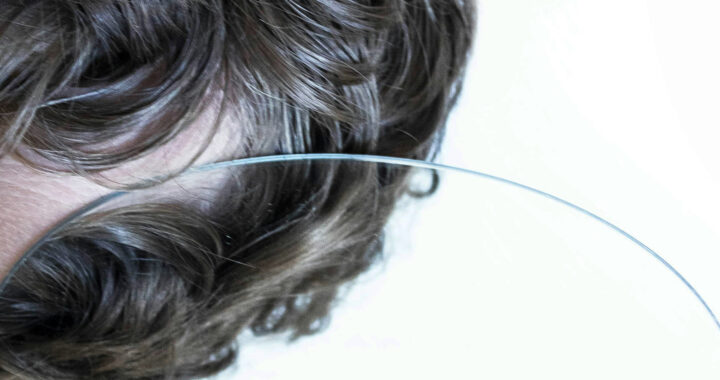Pelage Pharmaceuticals announced on 15 October 2025 that it had secured a Series B financing round worth 120 million U.S. dollars. The company plans to use the investment to advance its flagship regenerative medicine treatment designed to restart hair growth through the metabolic reactivation of dormant stem cells in hair follicles.
PP405 and the Promise of Follicle Reactivation After Pelage Funding Round
A biotech startup backed by major venture investors is betting on stem cell science to regrow hair. Pelage Pharmaceuticals is steering its topical drug toward late-stage trials and a potential first-in-class regenerative treatment.
Company Background
Pelage Pharmaceuticals is a clinical-stage regenerative medicine company focusing on reversing hair loss in men and women. The organization is built on more than 10 years of academic research examining how metabolic pathways influence the behavior of hair follicle stem cells across different stages of dormancy and regeneration.
The 120 million U.S. dollar Series B round was co-led by ARCH Venture Partners and GV, which was previously known as Google Ventures. Existing investors like Main Street Advisors, Visionary Ventures, and YK Bioventures also participated. The fresh funding will support continued development and preparation for late-stage clinical trials.
Moreover, as part of the financing arrangement, Cathy Friedman of GV becomes chair of the board, and Richard Heyman of ARCH Venture Partners is now part of the board of directors. Executive leadership includes Chief Executive Officer Daniel Gil, who has more than 70 issued patents and decades of experience in drug development.
Reversing Hair Loss
The flagship product of Pelage Pharmaceuticals is a topical small molecule called PP405. It is engineered to reactivate dormant hair follicle stem cells by triggering a metabolic switch. Company scientists report that the approach is designed to induce new growth from follicles where no visible hair had been present before treatment.
Note that the metabolic switch refers to a shift in how hair follicle stem cells generate and use energy. In their dormant state, these cells remain inactive and unable to produce new strands. By altering their metabolic activity, the small molecule PP405 prompts the hair follicle stem cells to reenter a growth phase and restart follicle development.
Interim data from a randomized and placebo-controlled Phase 2A trial involving 78 men and women with androgenetic alopecia were published in July 2025. Participants applied the treatment or placebo once daily for 4 weeks. This was followed by 8 weeks of observation to measure safety and possible signs of regeneration.
The trial met its primary safety endpoint. Investigators reported no systemic absorption in blood samples and no systemic adverse events. The company further stated that the topical formulation was well-tolerated across diverse skin phototypes and different hair textures during the observation period that followed the initial dosing phase.
Preliminary signs of efficacy were also noted. Specifically, among men with higher levels of hair loss, 31 percent of participants who used PP405 via topical applications on the scalp showed increases in hair density greater than 20 percent at week eight. No such improvement occurred among the placebo group during the same evaluation period.
Notable Implications
Pelage plans to initiate a Phase 3 clinical trial in 2026 to evaluate drug safety further and confirm efficacy in a larger population. The company presents its strategy as a response to longstanding gaps in available treatment for alopecia. These include cases involving women who currently have only one approved medical option for hair loss.
It is also worth mentioning that there are different types of alopecia with varying options of treatment. Androgenetic alopecia is the most common cause of hair loss among men. Telogen effluvium is hair loss due to stressors such as illness, childbirth, menopause, and weight loss. Some forms of hair loss are linked to autoimmune mechanisms.
Minoxidil is the most popular treatment for androgenetic alopecia. Platelet-rich plasma is another option. However, these treatments have limited efficacy and unclear mechanisms of action. Some are also sex-specific or are not suitable for all. Pelage is promising an almost universal solution for hair loss based on regenerative medicine.
FURTHER READINGS AND REFERENCES
- gov. 2025. “A Randomized, Multicenter, Double-blind, Vehicle-controlled, Phase 2a Study to Assess the Safety, Pharmacokinetics, and Efficacy of PP405 in Adults With Androgenetic Alopecia.” ClnicalTrials.gov. ID: NCT06393452
- Kim, J., Song, S.-Y., and Sung, J.-H. 2025. “Recent Advances in Drug Development for Hair Loss.” International Journal of Molecular Sciences. 26(8): 3461. DOI: 3390/ijms26083461
- Pelage Pharmaceuticals. 15 October 2025. “Pelage Pharmaceuticals Announces $120 Million Series B Financing to Advance Regenerative Medicine Treatments for Hair Loss. Pelage. Available online
